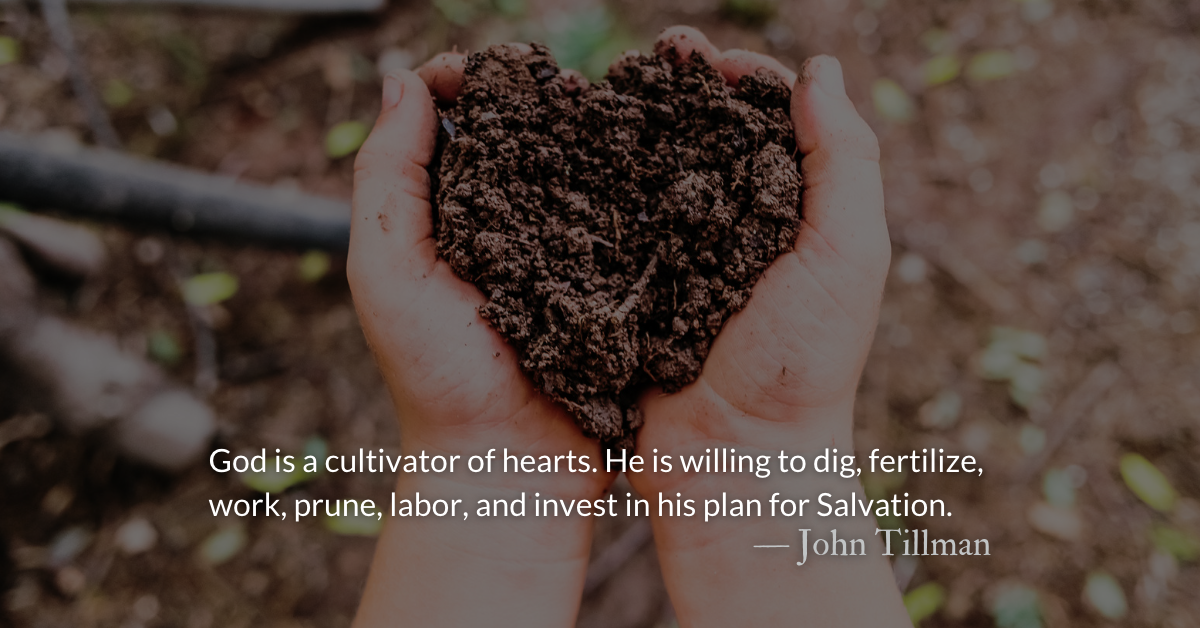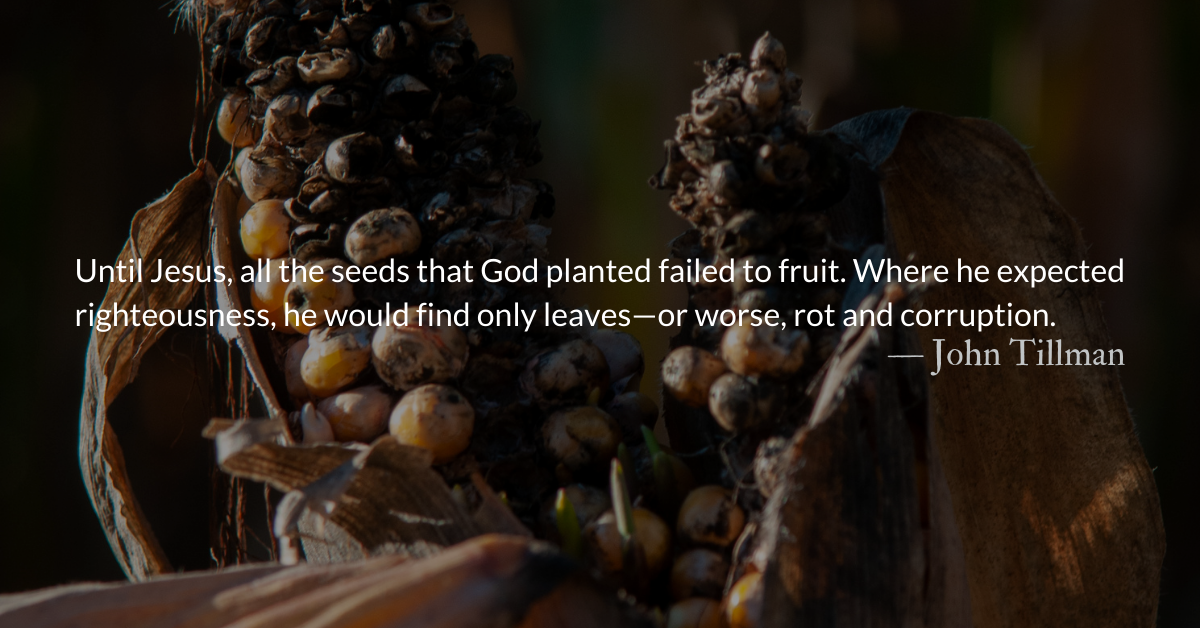Scripture Focus: Leviticus 2.1-3
1 “ ‘When anyone brings a grain offering to the Lord, their offering is to be of the finest flour. They are to pour olive oil on it, put incense on it 2 and take it to Aaron’s sons the priests. The priest shall take a handful of the flour and oil, together with all the incense, and burn this as a memorial portion on the altar, a food offering, an aroma pleasing to the Lord. 3 The rest of the grain offering belongs to Aaron and his sons; it is a most holy part of the food offerings presented to the Lord.
Reflection: Jesus, Our Grain Offering
By John Tillman
The connection between grain and worship is deep. Its roots go all the way back to Eden, in which, before any other profession, we were gardeners.
The first worship controversy involved Cain’s grains being unacceptable to the Lord. (Genesis 4.3-5) Presumably, they were not the best of his crop. Abel’s offering of the “fat portions” of the “firstborn of his flock” was accepted. “Fat portions” does not mean literal fat or waste fat that a chef or butcher might trim from a fine steak and discard. They are the richest part of the animal—the best cut, not the worst.
All offerings prescribed in Leviticus, whether grain, baked bread, oil, cakes, incense, or animals, were expected to be of the “finest” ingredients. Leftovers, defective animals, second-rate goods, or anything less than the “finest” was an insult to God.
Another way the scripture describes offering God the best is the term, “firstfruits.” Firstfruits referred to the first and best part of the harvest.
Metaphorically, Israel was the firstfruits of God’s efforts to cultivate righteousness on Earth. Scripture shows Israel as a wild, unruly vine that resists being cultivated. She is a stubborn and unfruitful fig tree that requires great labor to be fruitful. These images show the deep emotional investment God has in his people. God is a cultivator of hearts. He is willing to dig, fertilize, work, prune, labor, and invest in his plan for Salvation. (Luke 13.6-9)
But, until Jesus, all the seeds that God planted failed to fruit. Where he expected righteousness, he would find only leaves—or worse, rot and corruption. (Luke 6.43-44; Matthew 7.19; 21.19; Hosea 9.16)
Jesus recognized that his life was a seed that when planted would fruit one-hundredfold. Paul described Jesus as the “firstfruit from among the dead.” (1 Corinthians 15.20) Jesus is the first and best part of God’s harvest of righteousness.
When we stand before God, Jesus is our grain offering of the finest ingredients. Jesus is the fully-fruited head of righteousness, from which we can feed and be made fruitful in him. He is the healthy vine into which we can be grafted, so that his life-giving sap can flow in our branches.
Jesus is the bread, the grain, of life. He has offered himself for us and to us.
Through worship, prayer, and the word of God, may we feed more and more on Jesus, the bread of life, who brings health, strength, and righteousness to the body.
Divine Hours Prayer: A Reading
Then they said to him, “John’s disciples are always fasting and saying prayers, and the disciples of the Pharisees, too, but yours go on eating and drinking.” Jesus replied, “Surely you cannot make the bridegroom’s attendants fast while the bridegroom is still with them? But the time will come when the bridegroom is taken away from them; then, in those days, they will fast.” — Luke 5.33-35
– From The Divine Hours: Prayers for Springtime by Phyllis Tickle.
Today’s Reading
Leviticus 2-3 (Listen 4:43)
Luke 24 (Listen 6:16)
This Weekend’s Reading
Leviticus 4 (Listen 5:17) Acts 1 (Listen 3:58)
Leviticus 5 (Listen 3:35) Acts 2 (Listen 6:35)
Read more about Bread and Oil
The bread is symbolic of God as the source of life. Jesus was likely thinking of this bread when he said that he was the bread of life.
Read more about Supporting Our Work
Please consider becoming a donor. Support ad-free content that brings biblical devotionals to inboxes across the world.









